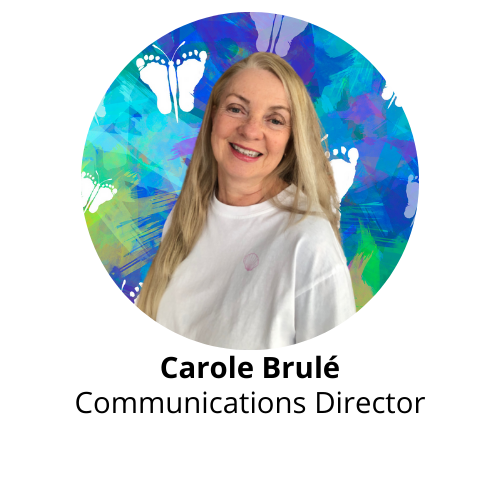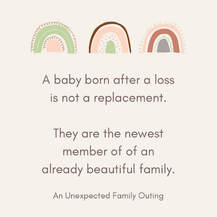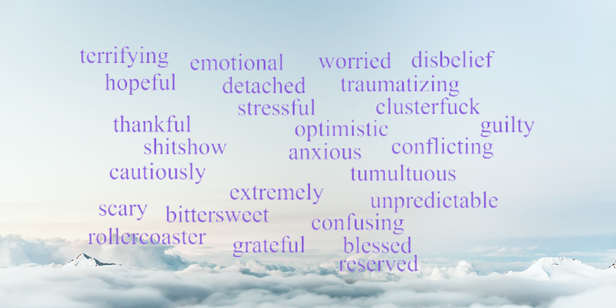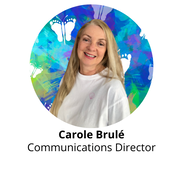|
Pregnancy After Loss March is Pregnancy after Loss (PAL) Awareness Month. It is a time to honour, remember and celebrate the Angel Babies, the Rainbow Babies, and their loving and courageous families. It is also a time to raise awareness and offer support to those who have experienced, are going through or who will travel this often misunderstood and incredibly painful journey. Although family, friends and colleagues are likely aware of what has happened, they may have a difficult time knowing what to say or how to support someone through such a devastating loss The sympathy note you never received. The phone call you were expecting that never came. The comforting words from friends and colleagues and even family, that remained unsaid. “You find out who your friends really are,” is a phrase often spoken by parents who have experienced the loss of their child. Does it mean that friends and family didn’t care? It is much more likely that they didn’t know what to say, however, the lack of support coupled with the world’s inevitable ‘busyness’ that carries everyone else along, leaves those who are bereaved, feeling even more isolated in their grief. “If there ever comes a day when we can’t be together, keep me in your heart, I’ll stay there forever” - Winnie-the-Pooh According to The World Health Organization: “Miscarriage is the most common reason for losing a baby during pregnancy. Estimates vary, although March of Dimes, an organization that works on maternal and child health, indicates a miscarriage rate of 10-15% in women who knew they were pregnant. Pregnancy loss is defined differently around the world, but in general a baby who dies before 28 weeks of pregnancy is referred to as a miscarriage, and babies who die at or after 28 weeks are stillbirths. However, miscarriages and stillbirths are not systematically recorded, even in developed countries, suggesting that the numbers could be even higher.” Jessica Zucker, clinical psychologist, and writer: "As a clinical psychologist, I specialise in women's reproductive and maternal mental health and have done so for over a decade. It wasn't until I experienced this 16-week miscarriage first-hand that I could truly grasp the anguish and the circuitousness of grief I had heard my patients speak of for so many years. After my miscarriage, I poured over the research which shows that a majority of women report experiencing feelings of shame, self-blame and guilt following pregnancy loss." Angels and Rainbows An Angel Baby is a baby who has passed away at any point in pregnancy or after birth/during infancy. In fertility terms, a Rainbow Baby, refers to a baby born after miscarriage, stillbirth, or infant loss. I have not experienced pregnancy after loss although in the volunteer work that I do, I have had, and continue to have, the profound honour of gently holding space for PAL moms, listening to their stories, and celebrating the life, however brief, of their beautiful angel babies. These ‘warrior moms’ make up a unique sisterhood, fiercely protective and supportive of one another and devoted to ensuring that “being a bereaved parent is a journey that no one ever need walk alone.” There is a common goal to seek out others who can share their experience and truly understand their heartache and their grief. By coming together to share their stories, their journeys and their pain, PAL parents find a glimmer of hope when both hope and joy feel forever lost. Bereaved parents know, and they want us to know, that they will miss their child Every. Single. Day. of their lives. "Rainbows reminds us that even after the darkest clouds and the fiercest winds there is still beauty.” – Katrina Mayer In thinking about the terms ‘Rainbow Baby’, we reflect on the fact that the beauty of a rainbow itself does not erase the ravages of a storm. Take a moment and envision a severe thunderstorm – ominous clouds scudding across the sky, heavy rain or hail pounding on glass, the deafening crash of thunder, branches being tossed, trees bending and breaking in the wind. All of your senses are engulfed by the sounds, the sudden darkness, and if you happen to be out in that storm, the fear. When the storm has passed, the sky clears, and a rainbow stretches over the clouds bringing with it a sense of hope and renewal that is almost magical. Then you look around and see that the world you knew is not the same – broken branches, fallen trees, flooded streets … damage. This reflection helps us to understand why storms and rainbows are the perfect metaphor for pregnancy after loss. It reflects the understanding that the beauty of a rainbow cannot undo the havoc of a storm. The clouds may still linger and sometimes, threaten to overwhelm, but the rainbow provides gentle hope and the promise of new life. The raw and complicated emotions of having a rainbow baby … When someone finds out that they are going to be a parent, it is a time of intense emotion - joy, disbelief, hope, and even fear, however, at this point in their journey, few parents spend time contemplating whether or not their baby might die. No one plans to go to the hospital but then leave with empty arms or prepare for a home birth and experience the death of the baby they hoped, longed, and waited for. For PAL parents, who find themselves expecting another child after having suffered such intense pain and heartbreak, renewed hope and optimism are most often mixed with conflicting feelings of intense grief, guilt, anxiety, and sorrow. This raw and overwhelming mix of emotions is well-described in this passage by Pregnancy after Loss Org: “When you ask a pregnant after loss mom if she’s excited, the answer might be “no.” Sure, she might force her lips into a cautious smile, or nod her head. She might even tell you, that “yes”, she is excited, but mostly because it isn’t socially acceptable to say no. While the pregnant after loss mom certainly may be excited at the prospect of bringing another baby into this world, be prepared to hear about the less talked about side of pregnancy when loss is involved. Instead of excited, she is likely scared that another of her precious babies will die. She may have Post Traumatic Stress Disorder (PTSD) related to her loss experience, because really, is there anything more traumatic for a mother than losing her child? The bottom line is that when you ask a PAL mom how she’s doing, be prepared to hear a real, messy answer instead of a blanket response.” The emotions associated with pregnancy after loss can be intense, unexpected and at times, utterly overwhelming. Some days you may feel joyous and hopeful – other days may find you completely paralyzed with fear. Either consciously or unconsciously, you may distance yourself from your unborn baby, not daring to get too attached while at the same time, feeling guilty about it. Whatever you feel - you are not alone. I feel that I can speak for all members of Ottawa’s Butterfly Run team when I say that there are no silly questions and no feelings or fears that other PAL parents have not experienced at some point during their journey. Feel what you need to feel and please reach out for support if you need to. We hope that there is comfort in knowing that whatever you feel, you are not alone. We asked our wonderful Butterfly Run Community for words that describe how pregnancy after loss felt for them. Their thoughts are reflected in this word cloud “Before you were conceived, I wanted you. Before you were born, I loved you. Before you were here an hour, I would die for you. This is the miracle of Mother’s Love.” — Maureen Hawkins
0 Comments
A little bit about me and my involvement in The Butterfly Run I am a mom to one strong, loving, and beautiful daughter (Véronique). My husband and I were very excited to start our family (many years ago) and as I have no siblings, I was eager to have more than one child. We were happy, positive, and ever hopeful that our first child would soon be in our arms. The months went by with no happy news to share with our family or friends. Those months began to stretch into years, and I found myself consumed with grief as I watched my friends having their babies and building their families. My husband and I had so much love to give – why were we unable to conceive? We often hear it said that ‘grief is not linear’ and the grief and despair associated with infertility is most definitely, nonlinear. Each month brings both hope and loss and over time, that sense of loss is reinforced and compounded. When I found out that I was infertile, both my very identity and my life became increasingly defined by that label. We began to explore why we were unable to have a family and so began the journey of exploratory surgeries, treatments and again, the inevitable cycles of hope, disappointment, and feelings of failure. Time went by and we rejoiced in the births of our beautiful nieces and nephews and the precious babies of our friends. We grappled with accepting the fact that we would never be able to have a child of our own and we began to explore other options such as adoption and fostering children. Imagine our surprise and joy upon finding (seven years after we started our journey) that we were finally expecting! Letting the light in I will continue to tell you more about my own story in future blogs but wanted to share ‘from the heart’ a time in my own life that was incredibly difficult and how my experiences around infertility, loss and hope have shaped the person that I am today. I sincerely feel that it is in sharing our pain that we connect with others who have walked a similar path and who truly understand. I believe that in that sharing, healing begins. Finally, when we are ready, we ‘give a voice’ to our experiences. So often, when we are grieving, we ‘live in our heads’ and process our grief and pain internally. If we do reach out to others, we often share only small fragments of our story. Having the ability to share our story from beginning to end in a safe space, validates what we are feeling. We share our story, those around us respond and we feel a sense of connection and of finally being understood. So today, I have shared a part of my story because I feel that by shedding light on topics that are often seen as ‘taboo’ and are misunderstood (such as infertility and perinatal loss), the more we liberate ourselves and begin the journey to healing. I will add a favourite quote of mine here that seems particularly fitting for this blog entry: “There is a crack in everything. That’s how the light gets in.” (Leonard Cohen, “Anthem”) So dear readers, when you are ready, take that first step and begin to share your story – help the light get in. Next: March is Pregnancy after Loss Awareness Month.
|
Archives
April 2023
Categories
All
|







 RSS Feed
RSS Feed